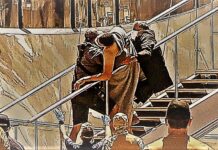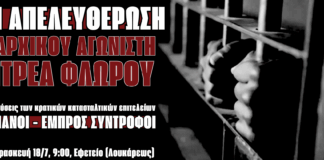On the 8th of January, militant D. Koufodinas begins a hunger strike, in resistance to the state totalitarianism that that revengefully attempts to impose a special regime against him and against all those who have already been or will be in the center of state repression. Last December, a law was voted that clearly forms a special regime for ‘those who have been condemned for terrorism’, in other words for those the state considers as internal enemies. On the one hand this tailor-made law for D. Koufodinas’ prevents him to be detained in rural prisons, while on the other hand, it creates, another one yet, bad precedent to enforce the state of exception against all those who struggle against state and capital’s brutality.
Having been a prisoner for 18 years, 16 of which he had spent in a special prison wing in Koridallos, D. Koufodinas, should have been transferred in Koridallos’ prison, even according to this authoritarian law that brutally violates prisoners’ rights. On the contrary, he was transferred in Domokos’ prison, as another example of state arbitrariness, by counterfeiting the necessary paperwork, an action that confirms the saying: “state is the biggest of all the mafias”. Against constant scheming at his behalf, accompanied by an ideological calumniation and Mass Media propaganda, D. Koufodinas chose to resist by starting a hunger strike.
The solidarity mobilizations that started to appear, right after the start of the hunger strike, faced, in many cases, the terrorizing violence of the repression forces, at the same time that employees were stuffed in workplaces and public transport, proving that the pandemic is nothing but an enforcement tool for the ones in power. The thousands of deaths, due to the pandemic, come nonetheless as a result of their policy and having no other criteria but profit and control led to dissolving the health system and forcing the people jam in their workplaces and markets. The authoritarianism experiments with the curfews, the attacks against political gatherings, the constant prosecutions and the upgrade of the indictments, attempted in vain to constitute the necessary steps for the establishment of modern totalitarianism.
During the hunger strike, the authority had to face the militancy of D. Koufodinas himself, the persistent mobilizations (gatherings, interventions, buildings’ occupations) of hundreds of strugglers, which in the beginning were mostly anarchists, which expressed, through their action, for more than 40 days, the social rage, which was pilling up. Koufodinas’ hunger strike, especially from the moment that his health condition was reaching a completely critical point, managed to create supture in the authority’s dominant narrative. At the same time the solidarity mobilizations in the streets became points of reference and coiling for broader sectors of society, while through this struggle, attempts were made, and to a certain extent successfully, to establish links with the broader social and class struggles that were already developing against the overall anti-social state and capitalist attack on society.
From our side, as anarchists, we stood in solidarity with the struggler D. Koufodinas, from the beginning of his hunger strike, against the exception regime for political prisoners and, in general, against state’s repression policy, by taking part in a number of political interventions and solidarity mobilizations, along with many more comrades. These mobilizations included: calls for demonstrations in Athens and Thessaloniki, occupation of the Workers’ Center in Thessaloniki, of the Athenian News agency, of the Ministry of Health, of a Ministry of Culture’s building and also a gathering in front of New Democracy’s offices in Athens. Another goal of our political intervention was the interconnection between this specific struggle with the wider social and class resistance, that was spreading at the streets and was trying to put embankments on state and capitalist dystopia that wants to be imposes on all society. As typical examples we can mention the universities’ occupations against the educational restructuring, against police terror in the campuses, the occupation of Aristotle University of Thessaloniki rectorate and the combative demonstrations of university students in Athens and Thessaloniki, which constituted an important point in the student resistance that developed in Greece.
The Greek state, having to choose a way of reconstruction as either a state of providence or a state of repression, chose the latter because social welfare is considered an obsolete concession that capitalism was made to give in a previous era. Modern totalitarianism doesn’t have – and is not able to – promise anything. New Democracy’s government, while is already counting thousands of deaths while governing, is once again trying to utilise the pandemic as an antisocial enforcement tool. Their goal is to go on with the application of what everyone in power wants to achieve, an annihilation of resistance and a complete power over society, whether we are talking about the imprisoned men and women or migrants and refugees or even about the ones that struggle against the enforcement of modern totalitarianism.
The police attack in Nea Smirni (that took place on a Sunday afternoon in an Athens’ square were people of all ages were out for a walk) highlighted what is already happening in all fields of daily life, it highlighted the police occupation of cities and neighbourhoods, the state terror and violence, which are not unfamiliar to all strugglers, youngsters, students and university students, migrants and refugees. In other word, that attack indicated the condition under which the vast majority of society is living in, facing, at the same time, the state’s criminal administration of the pandemic and poverty but also a constant threat from the state’s repression. The answer that was given to the police attack but also to the generalized effort of terrorizing the social base was the huge demonstration that took place in Nea Smirni, the rallies that were called in several other city’s squares and the demonstrations in dozens of other neighbourhoods and other towns – apart from Athens. The result of these mobilizations and forms of resistance that occurred was the retreat of the ongoing repression and a temporary limit the state could not cross – in spite of the fact that repression and the formation of police state was state’s main choice in dealing with the pandemic and in general. A state’s choice that was set once again in motion in Nea Smirni’s magnanimous demonstration, through the repression orgy and the police pogrom at the neighborhood’s streets using physical violence, teargases, stun grenades, invading in blocks of flats and marketplaces, torturing and sexually harassing the ones arrested, manufacturing an immense list of charges for all those were found hostage in state murderer’s hands and putting to custody, vindictively and with no good reason, 3 people.
After 65 days, D. Koufontinas stopped the hunger strike, without having achieved his objective goal, but it was a very important moment for the social and class struggle. Koufodina’s request was not answered but the struggling consciousness that led both men and women to fight at the streets facing the police forces’ repressive frenzy connected these people with the thousands of other that a few days later demonstrated for days in dozens cities against state repression, with the powerful mobilizations of university students, with the thousands that flowed the streets of Nea Smirni, with the huge demonstrations in towns and neighborhoods against police occupation, with the struggle for reinforcing public health against the murderous state policy regarding the pandemic. And it is this fighting spirit that keeps alive the constant battle against state and capitalist dystopia, that indicate the system, which produces nothing, but death and terror ought to be demolished, in order for us to build a new type of society on the basis of solidarity, equality, life, health and freedom.
The fear of the ones in power for the plebeians’ uprise is growing! Let’s make it real. The solution can be found in struggling so that we can demolish the laws and power of the ones guarding our lives. We promote organization, in an unmediated and anti-hierarchic way, in all social fronts. We promote social base unity, coordination in the action, solidarity and resistance!
Neither health nor freedom, state spreads death and terror.
In solidarity with the political prisoners, who face an exception regime.
In solidarity with the health workers’ struggle to reinforce public health.
In solidarity with all those who resist within university schools, exploitation fields, neighborhoods and streets.
In solidarity with all those who are being prosecuted, for taking part in Koufodinas’ solidarity mobilisations.
In solidarity with the ones prosecuted for Nea Smirni events and immediate freedom for the ones in custody.
In solidarity with migrants and refugees, against kills at the borders, imprisonment in concentration camps, kicking out from houses and impoverishment.
Organization and struggle for social revolution, anarchy and libertarian communism.
Anarchist Political Organization – Federation of Collectives

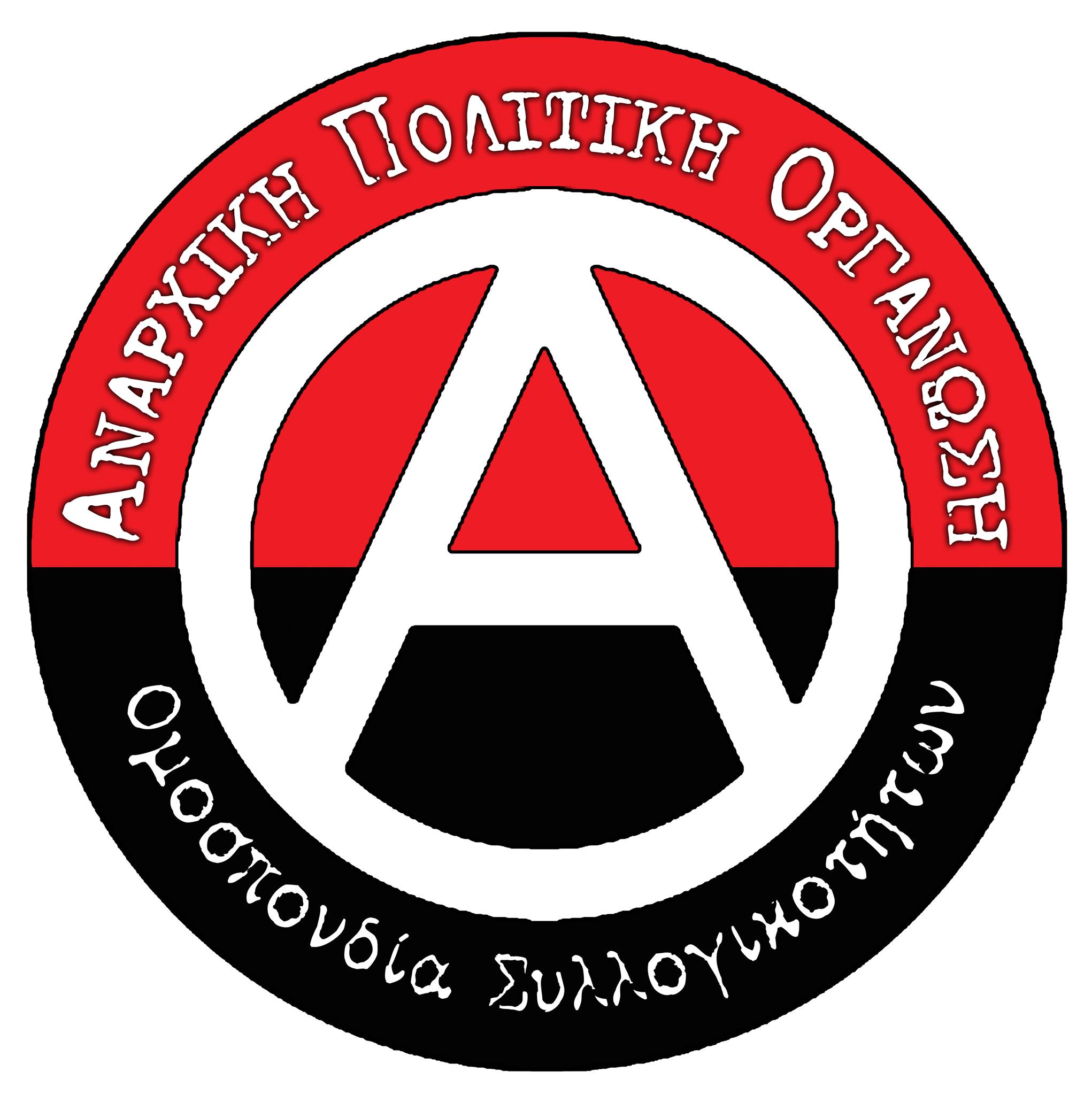
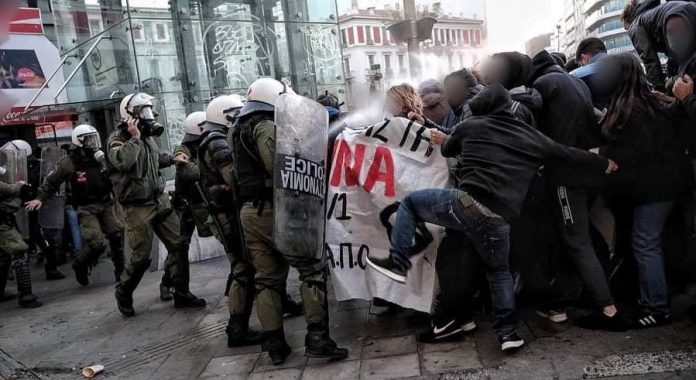
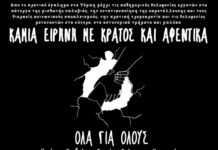
![[gr, eng] Παύση κάθε δίωξης του αναρχικού Libre Flot](https://apo.squathost.com/wp-content/uploads/2023/10/banner_flot-218x150.jpg)
